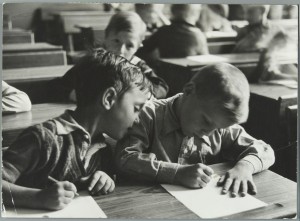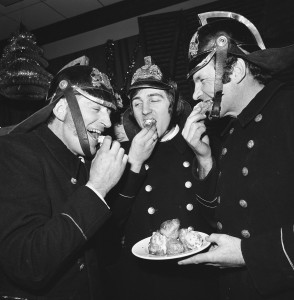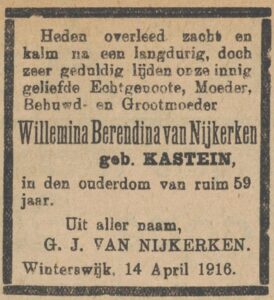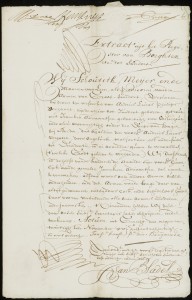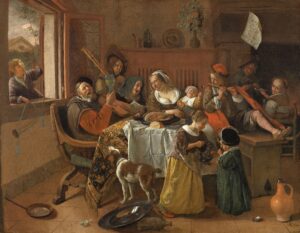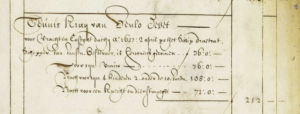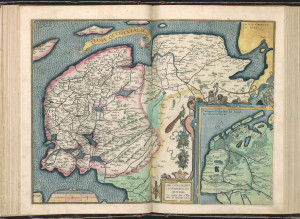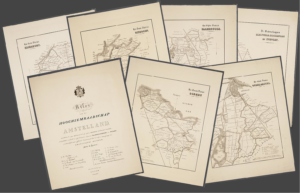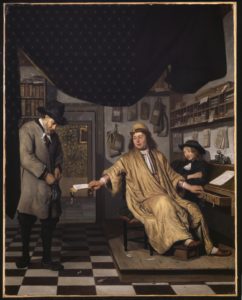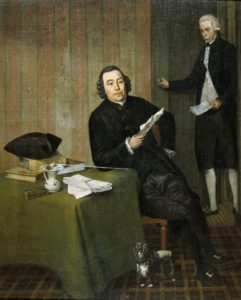Happy New Year everybody! Many records become public after 20, 25, 50, 75, or 100 years. Here is an overview of some of the records that became public as of 1 January 2022. Exceptions may exist for records that involve people that could still be alive. Just because records are public does not mean they are immediately available online. Some archives digitize the birth, marriage, and death records immediately, others do not. Some records will be online, some may be ordered via scanning on … [Read more...]
Top 10 posts for 2021
I continued my streak in 2021, writing at least two blog posts per week. These were the ten most popular blog posts this year. Interestingly, four of the articles are from 2005, when I started this blog. I wrote several articles that I thought would help people, and apparently they still do. Only one of the most popular posts was written this year. 1. Top 10 most common Dutch surnames (2013) This has been the most popular post on my blog since I wrote it in 2013. This post by itself … [Read more...]
Dutch term – Heden
Heden means "on this day." You may encounter this term in birth or death records, in family announcements in newspapers, or in any other document where the date is also found elsewhere. … [Read more...]
Quick tip – Find places of origin in bond letters
If you are searching for an ancestor's origins before 1811, it might be worthwhile to check the town registers to see if they submitted a bond letter. This is a certificate given out by their previous place of settlement that indemnifies the new town in case the person becomes poor. The old place of settlement promises to support them. If you find a bond letter, this will tell you where they came from. … [Read more...]
Dutch term – Speelkind
A speelkind [literally: play child] is a child born out of wedlock to unwed parents; not the result of adultery. Under Roman-Dutch law, a speelkind would inherit from his mother's family just like a legitimate child, but would not inherit from the father's side of the family unless explicitely named in a will. A child born from adultery, however, would inherit from neither family, not even when mentioned in a will. Speelkinderen could be legitimized by a subsequent marriage of their … [Read more...]
Quick tip – Is the translation correct and complete?
If you are lucky, an English translation exists for Dutch records. For example, many New Netherland records have been translated. In some cases though, what is presented as translations are actually abstracts. The original may have more information. Another aspect to consider is that translations are interpretations, and may have mistakes. For example, an account book of the West India Company 1650-1664 that includes money paid for passage to New Netherland is often presented in … [Read more...]
Dutch term – Quaclappen
Quaclappen is an archaic Dutch word that originally meant to gossip or slander. In genealogy, you may come across the term in court records, as the summaries of verdicts in civil cases. I have mostly come across the term in Friesland, where the index of quaclappen for 1527-1591 are available via Alle Friezen. Transcriptions for 1600-1620 are available via Tresoar. … [Read more...]
Dutch Genealogy News for November 2021
This is an overview of the new website projects, and other news announced last month. Sources Scans of birth, marriage, and death records of Zoetermeer are now available via Alle Zoetermeerders and WieWasWie. The Regionaal Historisch Centrum Vecht en Venen [Regional Historical Center Vecht and Venen] has made the first born digital records that are kept in their digital repository available online. The first online collections are photos of Stichtse Vecht and De Bilt. They are available … [Read more...]
Dutch term – Compareren
The verb "compareren" means to compear: to present oneself in a legal matter. Court or notarial records often start with "Compareerde voor mij" [compeared before me]. This is often followed by a formal testimony or request. … [Read more...]
Quick tip – Wills in the third person
Some people are surprised that many Dutch wills are in the third person ("leaves HER house to HER brother and HER sister"). This is because the wills are drawn up by a notary or court clerk, and the "I" in the record is the notary. "Today appeared before me, notary so-and-so, Mrs. this-and-that who declared this to be HER last will." … [Read more...]
